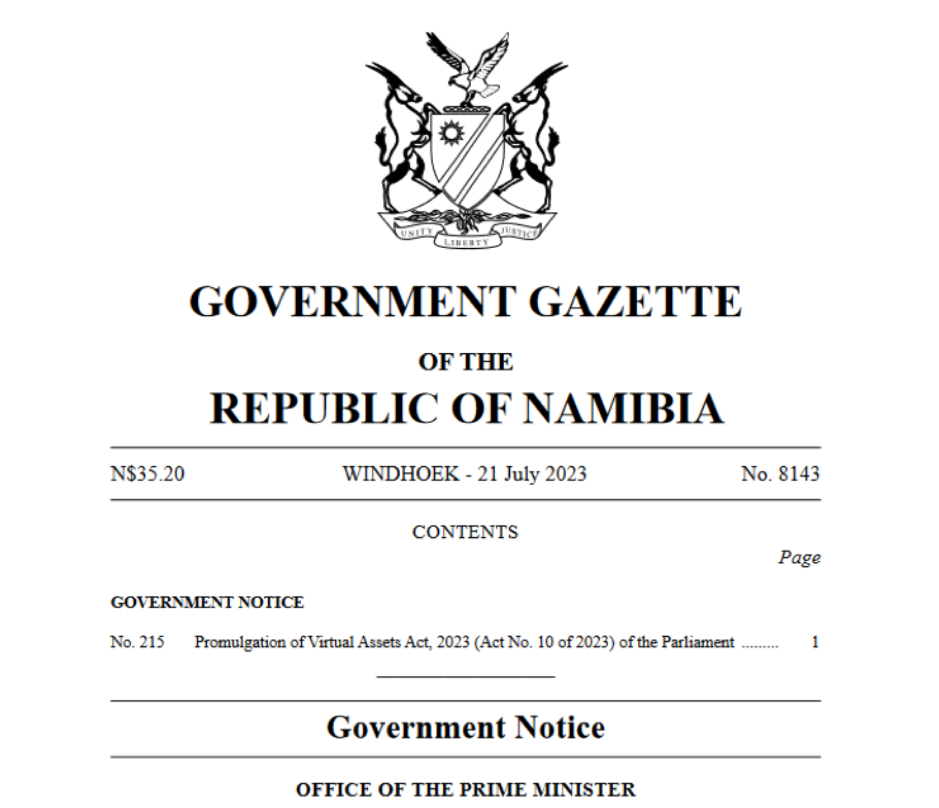Namibia Enacts a Law Regulating Cryptocurrency Exchanges
2023-07-26 07:27:45The Namibian Ministry of Finance will choose the day when the law becomes effective.

Source: techgistafrica.com
Last Monday, the Namibian government reversed its 2017 decision to outlaw Bitcoin exchanges and passed a bill to control Virtual Asset Service Providers doing business there. The VASP-regulating law was adopted by Namibia's National Assembly on July 6 and approved by President Hage Geingob on July 14 before being published in the Republic of Namibia's Gazette on July 21.

When the bill was published in the Republic of Namibia's Gazette, it became a law. The government of Namibia cited
The Namibia Virtual Assets Act 2023 is a proposed law that would designate a regulatory body to oversee the nation's crypto exchanges. It is the nation's first law outlining how cryptocurrency-related activity should be governed. The Namibian Ministry of Finance will decide when it goes into effect. To safeguard consumers, stop market exploitation, and reduce the dangers of money laundering and terrorism funding are among the key goals of the law.
According to reports, non-compliant providers might be subject to fines of up to $671,000 (ten million Namibian dollars) and ten years in jail. The Bank of Namibia, the nation's central bank, continues to retain the view that cryptocurrencies won't be accepted as legal cash there. Once the Bank of Namibia changed its previous judgment to prohibit Bitcoin exchanges in May 2018, Namibia's legal U-turn officially began.
South African Authorities Give The Crypto Exchange Roqqu Permission To Extend Operations
All Bitcoin exchanges in South Africa will need to secure licenses by the end of 2023 in order to maintain operating, the country's financial authority declared earlier this month. The countries of Botswana, Kenya, Mauritius, and Seychelles are among those in Africa that have enacted cryptocurrency legislation. In April 2022, the Central African Republic passed legislation making Bitcoin legal money; but, less than a year later, it was revoked. According to the International Monetary Fund, Cameroon, Ethiopia, Lesotho, Liberia, Republic of the Congo, Sierra Leone, Tanzania, and Zimbabwe are some of the African nations that have put a ban on cryptocurrencies into effect.
Disclaimer: FameEX makes no representations on the accuracy or suitability of any official statements made by the exchange regarding the data in this area or any related financial advice.